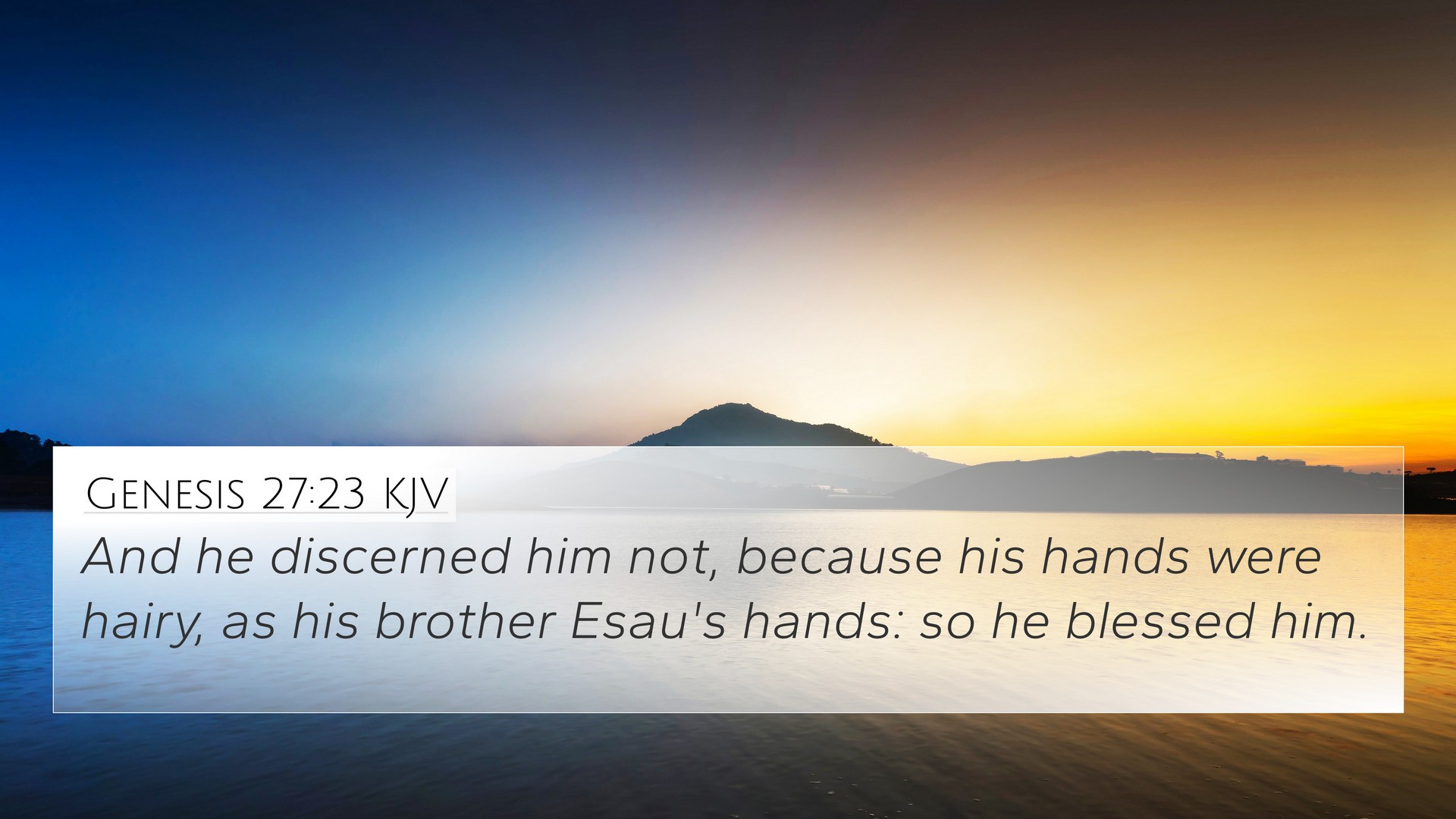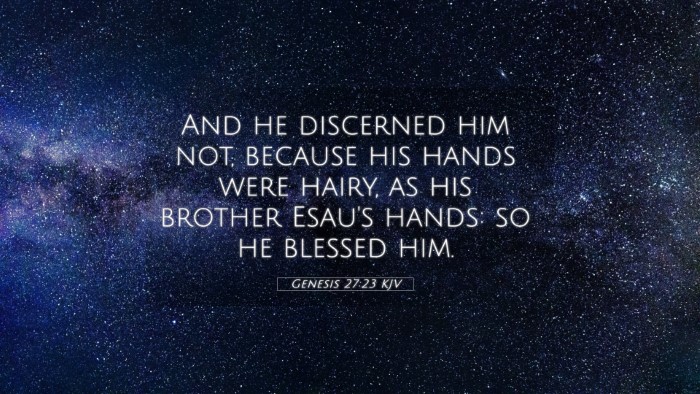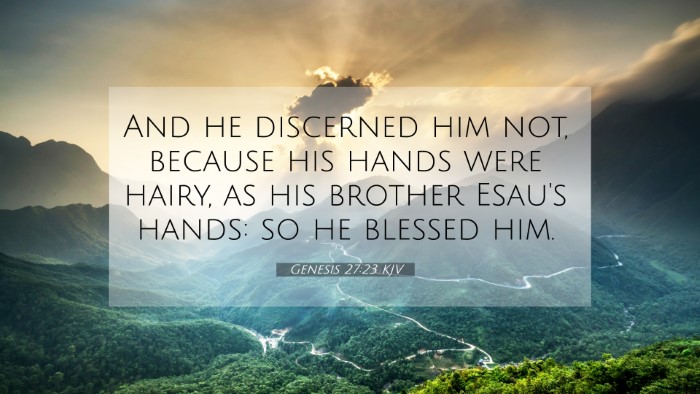Meaning and Interpretation of Genesis 27:23
Genesis 27:23 states, “And he discerned him not, because his hands were hairy, as his brother Esau's hands: so he blessed him.” This verse is pivotal in the narrative of Isaac blessing his sons, Jacob and Esau. Below, we explore the meaning and implications of this verse through the insights from public domain commentaries.
Context of Genesis 27
This chapter describes the crucial moment when Jacob, with the help of his mother Rebekah, deceives his blind father Isaac into blessing him instead of his elder brother Esau. This act of deception has significant theological and familial ramifications. The blessing was a vital aspect of the patriarchal tradition, conferring spiritual and material benefits on the elder son.
Commentary Insights
- Matthew Henry: Henry emphasizes the themes of deception and divine providence. He notes that Isaac’s blindness symbolizes lack of discernment, often representing the human inclination to rely on outward appearances. The situation illustrates that God's plans can unfold even through human failings.
- Albert Barnes: Barnes reflects on the implications of Jacob's actions. He discusses the moral complexities involved in Jacob's deception, highlighting the contrast between rightful means and the ends desired. He asserts that while Jacob’s actions were deceptive, the event served to fulfill God's prophecy regarding the blessing of the younger over the elder.
- Adam Clarke: Clarke reveals insight into the nature of Isaac's inability to recognize Jacob. He describes the physical traits Jacob adopted to resemble Esau, emphasizing that outward appearances often obscure deeper truths. Clarke notes this as an important reminder that God looks at the heart, rather than the external.
Thematic Connections
Genesis 27:23 raises several theological themes worth exploring. Notably:
- Deception: The chapter encapsulates deception's role in the fulfillment of God’s purposes.
- Divine Sovereignty: This verse stresses that God's ultimate plans prevail, despite human actions.
- Identity: Jacob's disguise symbolizes the complexity of identity in biblical narratives, offering a reflection on how one's life choices shape their identity before God.
Bible Verse Cross-References
Here are several cross-references that resonate with Genesis 27:23:
- Isaac’s Blessing - Genesis 27:28-29: The continuation of the blessing highlights the weight of the act.
- God’s Sovereignty - Romans 9:10-13: Paul discusses the election of Jacob over Esau.
- Identity in Christ - 2 Corinthians 5:17: The idea of becoming a new creation relates to the transformation in Jacob's character.
- Deception - Proverbs 12:22: This verse speaks to God's disdain for deceitfulness, echoing the moral lessons present in Jacob's actions.
- Spiritual Blindness - Matthew 15:14: The theme of blindness is paralleled in the New Testament, where spiritual discernment is a significant concern.
- Covenant Promises - Exodus 3:6: The importance of lineage and God's covenant offerings ties back to the blessing Isaac intended to give.
- Inheritance - Hebrews 12:16-17: The nuanced relationship between Jacob and Esau emphasizes the value of spiritual inheritance over material advantages.
Exploring Connections Between Bible Verses
This verse connects deeply with various other scriptures, illustrating the overarching themes of deception, divine choice, and familial conflict. By cross-referencing these texts, one can garner a comprehensive understanding of how these biblical narratives intersect.
Tools for Bible cross-referencing can enhance the study, allowing readers to perceive how individuals and events relate throughout scripture. A Bible concordance or a cross-reference Bible study guide can aid in discovering these nuances easily.
Practical Application
How can we apply the lessons from Genesis 27:23 in our lives? Consider the following:
- Integrity: Reflect on the integrity of your actions. Are you relying on deception to achieve goals?
- Divine Purpose: Trust that God’s purpose will prevail regardless of human foibles.
- Self-Awareness: Examine your identity and relationship with God in light of your actions and choices.
Conclusion
In conclusion, Genesis 27:23 encapsulates deep themes of deception, divine sovereignty, and identity. The insights from public domain commentaries enable a more profound understanding of the intricate dynamics at play within this narrative. Through the exploration of cross-referencing biblical texts, readers can discern broader theological truths that apply to their lives today.





